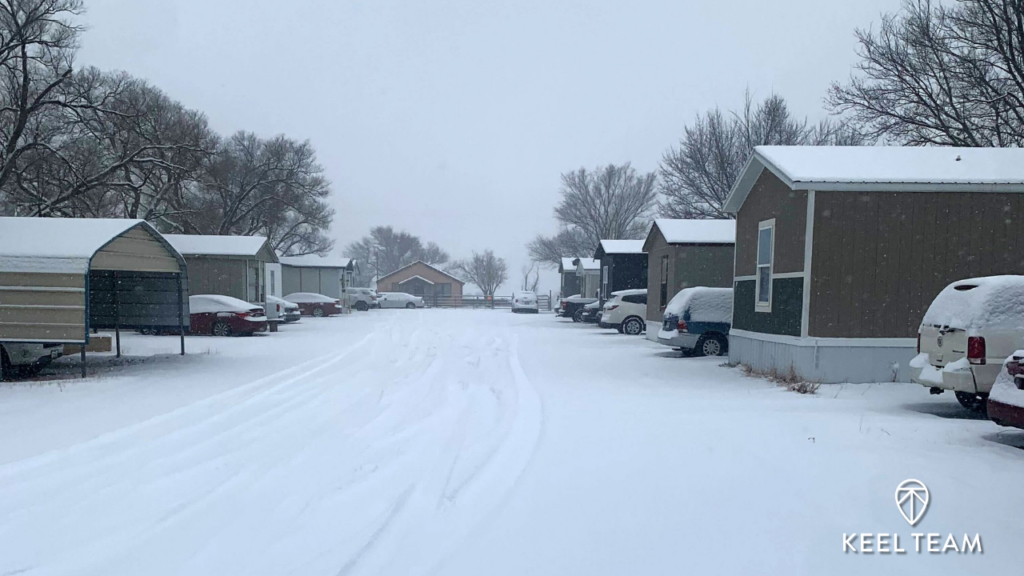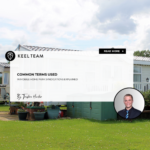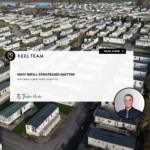Why Mobile Home Park Investing is a Hidden Gem for Passive Investors
-
 Tristan Hunter - Investor Relations
Tristan Hunter - Investor Relations

Investing in real estate offers many options, but one asset class remains under the radar for many passive investors: mobile home park investing. While single-family homes, apartments, and commercial properties dominate the market, mobile home parks present a unique opportunity. This investment option offers potential long-term cash flow, reduced competition, and recession-resistant demand. Let’s explore why mobile home parks could be a hidden gem for passive investors.
Reasons to Consider Passive Mobile Home Park Investing:
1.) High Demand with Limited Supply
Affordable housing remains a growing concern across the country. Mobile home parks provide one of the most cost-effective housing solutions, making them attractive to tenants seeking affordability. Unlike other real estate assets that can be built quickly, mobile home parks can face significant zoning and regulatory restrictions. Many cities prefer other types of developments, which limits the supply of new mobile home parks.
For investors, this restricted supply could help maintain steady demand. Since mobile home park tenants typically own their homes and rent the land, turnover rates tend to be lower than in other rental properties. This stability could make mobile home parks an appealing option for passive investors looking for consistent return potential.
Download our FREE eBook on the Top 20 things to know BEFORE investing in mobile home parks!
2.) Lower Maintenance Responsibilities
One of the biggest challenges in traditional real estate investing is property maintenance. Apartment complexes and single-family rentals often require extensive upkeep, from fixing plumbing issues to handling tenant complaints. Mobile home parks generally operate differently.
In most cases, mobile home park owners lease the land, while tenants own their homes. This arrangement reduces maintenance responsibilities, as tenants are responsible for their repairs. Investors who prefer a hands-off approach may find this model more manageable compared to other real estate investments.
3.) Strong Cash Flow Potential
Mobile home parks can have attractive income potential due to the difference between operational costs and rental income. Since these communities provide land rental rather than full-property leasing, expenses related to maintenance, property management, and turnover tend to be lower.
Additionally, many mobile home parks have historically under-market rents. Investors who acquire these properties and gradually adjust rents to reflect market rates could see an increase in income. However, these adjustments should always be done strategically to ensure long-term tenant retention.
4.) Recession-Resistant Nature
During economic downturns, demand for affordable housing often rises. Mobile home parks serve as a cost-effective housing solution for many individuals and families. While luxury apartments and high-end rentals may struggle during recessions, mobile home parks could see increased demand.
Because of this, mobile home park investing has been viewed as more resilient during market fluctuations. Investors seeking a hedge against economic downturns may find mobile home parks to be a compelling addition to their portfolio.
5.) Reduced Competition Compared to Other Real Estate Sectors
Many real estate investors focus on traditional assets like single-family rentals, multifamily properties, and commercial buildings. Mobile home parks, on the other hand, remain a niche market with less competition. Institutional investors have only recently started paying attention to this sector, but it still lacks the widespread interest seen in other real estate classes.
For passive investors, this reduced competition could mean better deals and more opportunities to enter the market. Additionally, because mobile home park investing requires specific knowledge, investors who take the time to understand the sector could gain an advantage over those who overlook it.

6.) Opportunity for Value-Add Strategies
While mobile home parks can provide strong cash flow, there are also opportunities for value-add improvements. Simple changes like upgrading amenities, improving infrastructure, or adding professional management could increase the property’s value and attract quality tenants.
Some common value-add strategies include:
- Increasing occupancy by filling vacant homes and lots
- Increasing rents to market
- Offering utility bill-back programs
- Addressing deferred maintenance
- Implementing professional property management
- Improving infrastructure such as roads, signage, and fencing
For passive investors, working with experienced operators who specialize in mobile home park improvements can help maximize returns without requiring direct involvement.
7.) Long-Term Stability
Since mobile home park tenants own their homes and rent the land, they tend to stay longer than tenants in traditional rental properties. Moving a mobile home can be expensive and logistically challenging, which means turnover is generally lower. This could lead to more stable rental income over time.
Additionally, mobile home parks often operate with lower vacancy rates than other types of rental properties. While no investment is guaranteed, many mobile home park owners report strong occupancy rates and consistent tenant demand.
The Passive Investing Advantage
For those who want to invest in mobile home parks without taking on the responsibilities of ownership, passive investing options exist. Syndications and real estate funds allow investors to pool their money with experienced operators who handle acquisitions, management, and improvements.
Passive investors can potentially benefit from:
- Monthly or quarterly distributions
- Professional asset management
- Diversification within a larger portfolio
- Reduced time commitment compared to direct ownership
Partnering with seasoned mobile home park operators can provide a way to gain exposure to this asset class while minimizing personal involvement.
Final Thoughts
Mobile home park investing remains an underappreciated sector in real estate, yet it generally offers unique advantages for passive investors. With high demand, low turnover, and opportunities for value-add improvements, mobile home parks could provide long-term cash flow and stability. While every investment carries risk, those willing to explore this niche may find it to be a hidden gem in the real estate market.
For investors looking to diversify their portfolios and explore mobile home park investing, working with experienced operators could be a strategic way to gain exposure while keeping a passive approach.
Are you looking for MORE information? Book a 1-on-1 consultation with Andrew Keel to discuss:
- A mobile home park deal review
- Due diligence questions
- How to raise capital from investors
- Mistakes to avoid, and more!
Disclaimer:
The information provided is for informational purposes only and is not investment advice or a guarantee of any kind. We do not guarantee profitability. Make investment decisions based on your research and consult registered financial and legal professionals. We are not registered financial or legal professionals and do not provide personalized investment recommendations.

Tristan Hunter - Investor Relations
View The Previous or Next Post
Subscribe Below 👇





